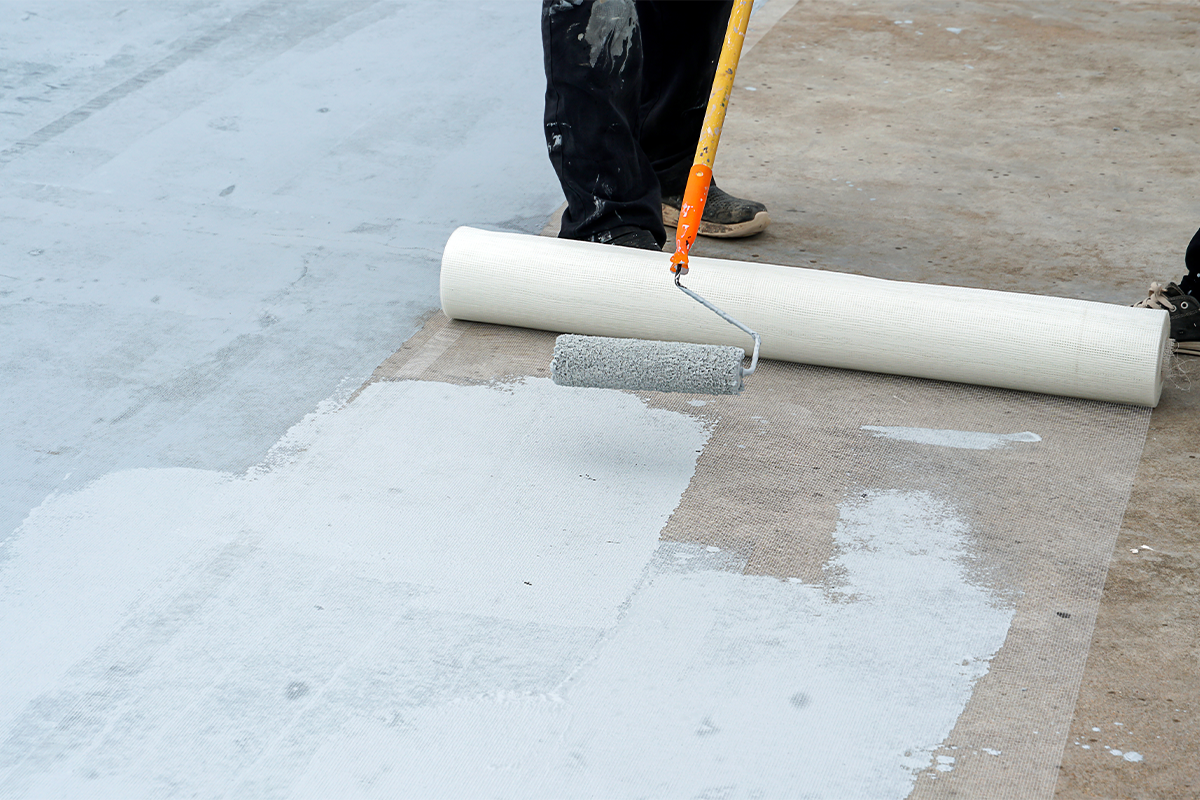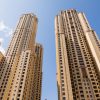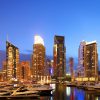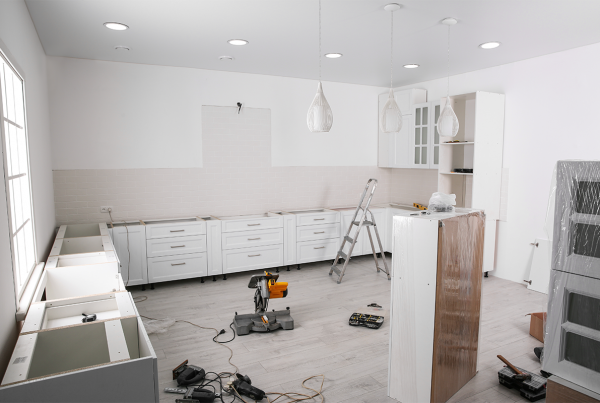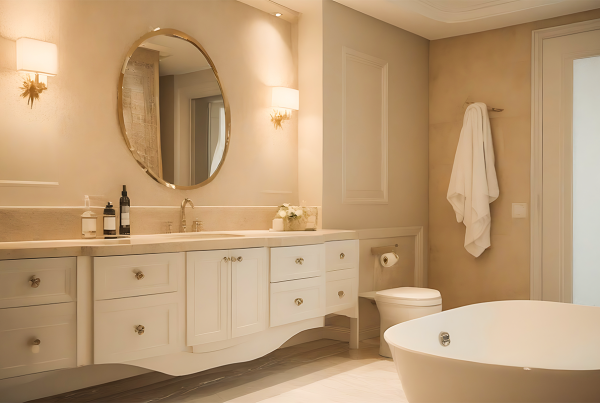The United Arab Emirates (UAE) is a country known for its stunning architecture, luxurious lifestyle, and warm hospitality. However, the UAE also has a unique climate that can pose challenges to buildings and structures, particularly in terms of waterproofing.
Rainfall in the United Arab Emirates (UAE) is a relatively rare occurrence, with an average annual rainfall of about 100 millimetres (4 inches). However, when rainfall does occur, it can be intense and cause significant damage to buildings and infrastructure.
The Effects of Rainfall on Buildings in the UAE
Heavy rainfall can have several negative effects on buildings in the UAE, including:
- Water infiltration: Water can seep into buildings through cracks, joints, and openings, leading to structural damage, Mold and mildew growth, and electrical hazards.
- Flooding: Heavy rainfall can overwhelm drainage systems, causing flooding in basements, garages, and other areas of buildings. This can damage furniture and appliances, and also pose health risks.
- Erosion: Rainwater can erode soil around foundations, making buildings more vulnerable to collapse.
- Wind damage: Strong winds often accompany heavy rainfall, which can further damage buildings by tearing off roofs, breaking windows, and toppling trees.
Importance of Waterproofing
Protecting Against Rainfall:
The UAE experiences sporadic heavy rainfall, especially during the winter months. We can’t stress enough on Importance of waterproofing in order to prevent water infiltration into buildings, which can lead to structural damage, mold growth, and compromised indoor air quality.
Mitigating the Impact of High Humidity:
The region’s high humidity levels can contribute to the deterioration of building materials. Waterproofing acts as a barrier, preventing moisture from penetrating structures and safeguarding against issues like corrosion, rot, and degradation.
Preserving Structural Integrity:
Continuous exposure to harsh weather conditions, including intense sunlight and sandstorms, can weaken building structures over time. Waterproofing not only protects against water damage but also serves as a shield against other environmental elements, preserving the structural integrity of constructions.
Benefits of Waterproofing
Increased Lifespan of Structures:
One of the benefits of Waterproofing is that it extends the lifespan of buildings and infrastructure by preventing damage caused by water, humidity, and other environmental factors. This longevity is crucial for sustaining the impressive architectural landscape of the UAE.
Reduced Maintenance Costs:
Investing in waterproofing can lead to significant cost savings in the long run. By preventing water-related damage, property owners can avoid expensive repairs and maintenance, making it a wise financial decision.
Health and Safety:
Water damage can lead to the growth of Mold, which can cause health problems for the occupants of the building. Waterproofing prevents the growth of Mold, thus improving the health and safety of the building occupants.
Improved Indoor Air Quality:
Waterproofing not only protects against external moisture but also prevents the growth of Mold and mildew inside buildings. This, in turn, contributes to better indoor air quality, promoting the health and well-being of occupants.
Protection of valuables:
Water damage can lead to the loss of valuable items such as furniture, electronics, and other belongings. Waterproofing protects these items by preventing water from entering the building.
Waterproofing Your Roof
The Most Popular Waterproofing Methods for Construction
The choice of waterproofing method depends on various factors, including the type of structure, the specific area being waterproofed, and the budget. Some of the most common waterproofing methods used in construction include:
Liquid Waterproofing Membranes:
Liquid-applied membranes provide a seamless and flexible waterproofing solution for roofs. They are easy to apply and adhere well to various surfaces, offering long-lasting protection.
Bituminous Waterproofing:
Bitumen-based waterproofing involves the application of bituminous sheets or coatings to create a durable and water-resistant barrier. This method is particularly effective in the UAE’s hot climate.
Polyurethane Waterproofing:
Polyurethane coatings create a robust and elastic waterproofing layer, making them suitable for roofs exposed to extreme weather conditions. They are resistant to UV rays and can withstand temperature variations.
Cementitious Waterproofing:
This method involves applying a cementitious coating to surfaces, providing a durable and water-resistant layer. It is often used for foundations, basements, and retaining walls.
Intrusive Waterproofing:
This method involves injecting waterproofing agents into existing cracks or voids in structures to seal and prevent water penetration. It is particularly useful for repairing leaks and treating existing water damage.
Waterproofing Services:
To ensure the effectiveness of waterproofing your roof, it is crucial to enlist the services of a reputable waterproofing company. In the UAE, where the demand for waterproofing is high, choosing the right company is essential for quality workmanship and lasting results.
When selecting a waterproofing company in Dubai, it is crucial to consider several factors to ensure you receive high-quality services and effective protection for your property. Here is a comprehensive guide to help you make an informed decision:
Experience and Reputation:
- Experience: Prioritize companies with a proven track record in the waterproofing industry. Look for companies that have been operating for a significant period and have successfully completed numerous projects in the UAE.
- Reputation: Check online reviews, testimonials, and industry awards to gauge the company’s reputation and the satisfaction of its clients. Positive feedback and recognition can indicate a company’s reliability and expertise.
Licensing and Certification:
- Licensing: Ensure the company is duly licensed and registered with the relevant authorities in Dubai. This ensures they adhere to local regulations and standards.
- Certifications: Check if the company holds certifications from recognized organizations, such as the UAE Contractors Association or the International Organization for Standardization (ISO). Certifications demonstrate their commitment to quality and international standards.
Scope of Services and Expertise:
- Scope of Services: Evaluate the company’s range of waterproofing services to ensure they cover your specific requirements. Inquire about their expertise in different types of waterproofing methods and their suitability for your property.
- Expertise: Assess the company’s knowledge and experience in handling waterproofing projects like yours. This includes their understanding of local climate conditions and common waterproofing challenges in the UAE.
Quality of Materials and Techniques:
- Materials: Inquire about the quality of waterproofing materials they use. Ensure they employ high-grade, durable, and internationally recognized materials that are compatible with the climate and construction of your property.
- Techniques: Verify that the company utilizes industry-approved and effective waterproofing techniques. Ask about their approach to identifying potential water entry points and their methods for applying waterproofing materials.
Communication and Project Management:
- Communication: Assess the company’s communication style and responsiveness. Ensure they provide clear explanations of the waterproofing process, address your concerns promptly, and maintain regular communication throughout the project.
- Project Management: Evaluate their project management capabilities. Inquire about their approach to planning, scheduling, and monitoring the waterproofing project to ensure timely completion and adherence to your requirements.
Warranty and Insurance:
- Warranty: Check if the company offers a comprehensive warranty on their waterproofing services. This protects you against any material or workmanship defects that may arise during the warranty period.
- Insurance: Ensure the company has adequate liability insurance to cover any potential damages that may occur during the waterproofing process. This protects your property and ensures financial compensation in case of unforeseen events.
Additional Considerations:
- Local Knowledge: Prioritize companies with a strong understanding of local building codes, regulations, and waterproofing challenges specific to Dubai.
- Client References: Request references from previous clients to gain insights into the company’s work ethic, quality of service, and customer satisfaction.
- Competitive Pricing: Obtain quotes from multiple companies to compare pricing and ensure you receive competitive rates without compromising quality.
- Professionalism: Evaluate the company’s overall professionalism, including their communication, responsiveness, and adherence to safety standards.
Conclusion:
In a climate as demanding as that of the UAE, waterproofing is not just a luxury but a necessity for preserving the longevity and aesthetics of structures. From protecting against rainfall and high humidity to preserving structural integrity and improving indoor air quality, the benefits of waterproofing your roof are manifold. Whether considering waterproofing for roofs or seeking comprehensive services from the best waterproofing companies in Dubai, investing in effective waterproofing measures is an integral part of responsible construction practices in the UAE.
Waterproofing is an essential part of protecting buildings in the UAE from the damaging effects of rainfall. By investing in proper waterproofing measures, homeowners and building owners can save money, protect their property, and ensure the longevity of their buildings.



